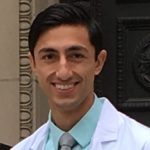Perhaps the most damaging legacy of Donald Trump’s presidency so far has been the fake news phenomenon. When Trump at one of his first press conference as president-elect pointed at a CNN journalist and said, “You are fake news,” he was doing a lot more than complaining about a media highly critical of him. Ever since that day, Trump has invited himself and his supporters to utilize the invocation of “fake news” to provide immunity from confrontation and fact. From the Russia dossier to reports of internal turmoil within the administration to the numerous allegations of sexual harassment against him, Trump has repeatedly played the fake news card to avoid further debate on any subject that exposes him as vulnerable or culpable. As unpresidential and unprofessional as this behavior may be, more alarming is that Trump supporters have also adopted this tactic.
When the media criticizes Trump, his supporters adamantly deny it. A POLITICO poll found that eight months after the election, about half of Trump voters believed that he had won the popular vote. How could they believe this? Because Trump said so. Similarly, despite still growing evidence of collusion between the Trump campaign and Russia, 72 percent of Trump voters believe the claim to be fabricated. And less than half of Trump voters believe that Donald Trump Jr. met with a Russian lawyer during the presidential campaign, even though he admitted to it himself. This tactic of dismissing anything contrary to one’s belief as fake news allows Trump supporters to comfortably construct a worldview that pleases them. The political consequences are extreme; with supporters who obsequiously and unquestioningly hold Trump’s word as truth, he can manipulate the propagation of information to achieve his agenda.
Health care is far from exempt amidst this battle of ideology. In fact, it is very much caught in the crossfire. The spread of misinformation has been a concern since the birth of the internet (and certainly well before), but the fake news phenomenon has only compounded it. Erroneous claims on social media sites such as Facebook and Twitter as well as personal blogs spread myths like wildfire: vaccines cause autism, deodorant causes cancer, dairy causes inflammation, essential oils cure all infections. Claims like these — unsubstantiated by the current medical and scientific knowledge — are liked and shared and mutated, spreading and infiltrating into society’s collective consciousness like a cancer. Worse yet, certain self-proclaimed “enlightened” scientists and physicians take advantage of the scientific illiteracy of the public and create pages and other platforms to spread what literally is fake news. Dr. Oz has over six million followers on Facebook, despite having been taken to court for propagating misinformation; despite a Canadian study finding only 21 percent of recommendations based on research in 40 Dr. Oz episodes; and despite Dr. Oz himself having admitted to “[his] role in the propagation of these scams.” But just like the Trump supporters who unconditionally believe his word, so many social media users refuse to believe anything that contradicts their worldview.
Central to the ethos of the fake news phenomenon is dismissing any information inconsistent with one’s worldview as false. An additional component of the phenomenon is using ad hominem attacks to undermine the credibility of the information. Trump and his supporters can discredit any claim made by CNN or the New York Times simply by appealing to the notion that the media has a liberal bias.
Similarly, consider the case of vaccines, a particularly pertinent issue in the midst of falling vaccination rates and rising outbreaks of preventable infectious diseases. One common anti-vax argument implicates physicians and pharmaceutical companies, namely that, since physicians and pharmaceutical companies benefit from vaccination, they promote it. Furthermore, others have alleged that the research supporting vaccination is fake news because research is funded by the government, which also both encourages and benefits from vaccination. Paranoia and mistrust of authority lead these individuals to reject evidence-based research and the recommendations of physicians, lending credence instead to unsubstantiated anecdotes and the feigned wisdom of specious evidence harbored by these spurious Facebook pages. In the case of medical knowledge, however, such rejection of fact may lead to eventual negative health outcomes.
The preponderance of misinformation is not a new phenomenon, but since this post-truth era has bestowed upon it the artillery of paranoia and mistrust of authority, physicians must be equipped to diagnose and attempt to remedy fake news. With the vast amount of misinformation available to patients (in addition to the sea of evidence-based information also at their disposal), it is more important than ever before for medical students to learn how to critically examine the scientific literature on a topic and meticulously attempt to separate fact from fiction. Equally important, medical students must learn how to approach patients who present with inaccurate or misinformed beliefs. Compassionate and patient, this ethos safely invites patients to explore the complex and nuanced truth-seeking world of science without alienating them by dismissing them as ignorant. While President Trump will likely never change his approach to fake news, a promising medical future is one where physicians indefatigably advocate for their patients’ health,and empower their patients through the arsenal of evidence-based medicine to fight the epidemic of fake news.

